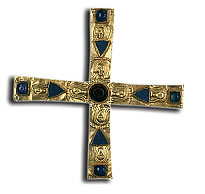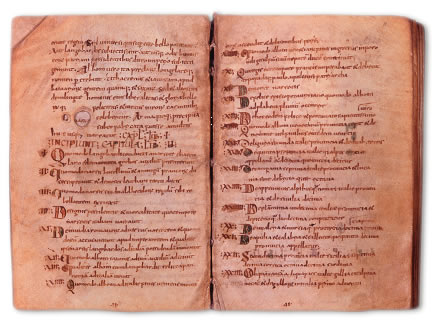Scientific Area » Longobard Culture » Literary Production
« Back
LITERARY PRODUCTION
The Germanic gentes left a literary production, for example the translation of the Bible into Gothic by Ulfilas in 4th century for his people, which required the creation of a National alphabet drawn on by the Greek biblical capital letter with the addition of a number of characters of Latin uncial and some runes.

The Roman barbarian kingdoms contributed to the development of Roman storiography, too. The Gothic History by Cassiodorus, which was the best cultural expression of the Italian Roman opening to the Ostrogothic world, paved the way for the following current of National histories by orientating the composition of the histories of Germanic gentes settled in Western Romance Europe (Romānia) and almost progressively acculturized according to the Latin-Christian traditions.

Particularly important are: the anonymous Origo gentis Langobardorum, Historia Langobardorum by Paul the Deacon, Isidors history of Goths, Vandals and Sueves in Visigothic Spain, Historia Francorum by Gregory of Tours in Gaul, Historia ecclesiastica gentis Anglorum by Bede in Anglo-Saxon Britannia.
If the process of mutual approach of both Germanic and Roman sides inside the various Germanic kingdoms led to the genesis of nations, the Germanic National storiographies were a paramount component of such genesis. The histories of the Germanic gentes paved the way for National storiographies, that is the Histories of the European peoples.
« Back


